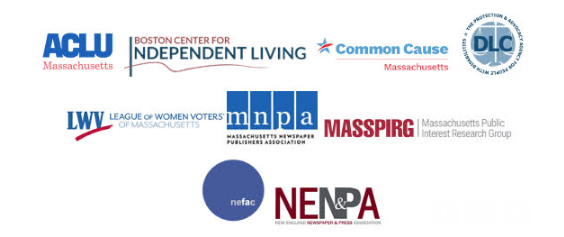Deirdre Cummings
Legislative Director, MASSPIRG
617-747-4319
[email protected]
Legislative Director, MASSPIRG
617-747-4319
[email protected]

BOSTON – With virtual public meetings set to expire statewide on July 15, several advocacy organizations today announced support for a new Boston proposal to permanently establish virtual participation options for public meetings. The groups—including disability rights, good government, and free press organizations—support an ordinance filed last week by City Councilor Liz Breadon to make local government more accessible to all Boston residents.
“Remote participation is not simply about safety or convenience in the midst of a pandemic, but about maintaining equitable and meaningful access. We cannot simply retreat from pandemic provisions which have been in place for the past 25 months and are set to expire in less than three months,” said District 9 City Councilor Liz Breadon. “This is about setting the standard for how we continue to engage people with disabilities, seniors, people with limited access to transportation, and people with work and family obligations who otherwise would be unable to attend a meeting in person.”
In many communities across the state, virtual access to public meetings has significantly increased public participation in local government, and has removed longstanding barriers for people with disabilities, people with limited access to transportation, and people with work and family obligations. As public bodies return to conducting meetings in person, advocacy organizations warn that newly opened doors to civic engagement will be shut—and people with disabilities and other barriers to in-person participation will be shut out—unless remote access is preserved.
“Local democracy works best when all of us are able to engage,” said Kade Crockford, Technology for Liberty program director at the ACLU of Massachusetts. “We commend Councilor Breadon for her commitment to remote participation for
Boston residents. Access to the democratic process should never again hinge on a person’s physical mobility or their ability to afford a car, get time off work, or find a care provider.”
“I’ve been driving a motorized wheelchair since I was two years old, and it was during the pandemic that I attended my first legislative hearing–remotely,” said Dianna Hu, chairwoman of the Boston Center for Independent Living. “People who have mobility issues, who have chronic health conditions, who face accessibility barriers when traveling–these are some of the groups of people who can be enabled, through remote participation, to engage with their government in a new and empowering way. If members of the public have the right to give their voice and their vote at a meeting in person, then that right has to be upheld when people attend that meeting remotely. Anything less would be excluding people again.”
“In 2004, the U.S. Supreme Court decided Tennessee v. Lane, an Americans with Disabilities Act case in favor of a litigant with disabilities who was forced to crawl up two flights of stairs to access a courtroom,” said Rick Glassman, director of advocacy at Disability Law Center. “In 2022, the same principle—that government must remove obstacles to full participation and a meaningful opportunity to be heard—calls upon cities and towns to adopt hybrid remote access to their proceedings.”
“There is no need to go backwards,” said Deirdre Cummings, legislative director for MASSPIRG. “Transparent and accessible government strengthens our democratic process resulting in stronger communities for all.”
Endorsing organizations include the ACLU of Massachusetts, Boston Center for Independent Living, Common Cause Massachusetts, Disability Law Center, League of Women Voters of Massachusetts, Massachusetts Newspaper Publishers Association, MASSPIRG, New England First Amendment Coalition, and New England Newspaper & Press Association.
In a win for government transparency, the groups recently helped reverse the Governor’s Council decision to stop livestreaming its meetings. The coalition also backs a legislative proposal (H.3152/S.2082) that would update Massachusetts’ Open Meeting law to make remote access and participation during public meetings permanent and routine in every municipality across the state.